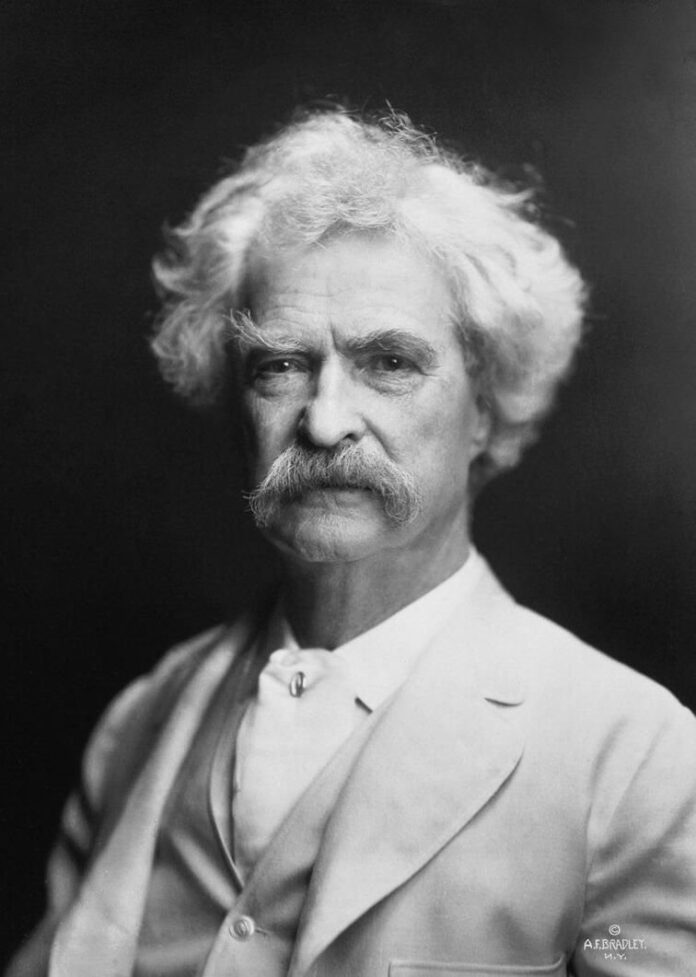On November 30, 1835, in the small village of Florida, Missouri, Samuel Langhorne Clemens entered the world—a world he would later transform with his sharp wit, boundless imagination, and searing commentary on human nature. Better known by his pen name, Mark Twain, he remains one of the most celebrated figures in American literature, a master of satire and storytelling whose works like The Adventures of Tom Sawyer (1876) and Adventures of Huckleberry Finn (1885) are immortalized in the cultural canon.
Twain was born during Halley’s Comet’s approach, a celestial event he famously tied to his life, predicting he’d “go out with it” too. True to his word, he passed away on April 21, 1910, the day after the comet’s return—a poetic end for a man who lived with a celestial kind of brilliance.
A Life Shaped by the Mississippi
Twain’s early years were steeped in the rhythms of the Mississippi River, a presence that would define his writing. After moving to Hannibal, Missouri, a bustling river town, young Clemens soaked in the local color—the dialects, characters, and adventures—that would later animate his most famous novels. Tragedy also marked his youth, as he lost his father at 11 and faced financial struggles that would shape his perspective on wealth and status.
In his twenties, Twain pursued a lifelong dream of becoming a riverboat pilot, mastering the Mississippi’s treacherous currents. This chapter of his life imbued his prose with vivid, flowing descriptions and gave rise to his pen name: “Mark Twain,” a steamboat term indicating safe water depth.
From Gold Rush Satirist to National Treasure
Twain’s writing career took off during a stint in the Nevada Territory, where he worked as a journalist amid the chaos of the Gold Rush. It was here that he honed his distinctive voice—a blend of humor, irreverence, and keen observation. His breakthrough came in 1865 with “The Celebrated Jumping Frog of Calaveras County,” a humorous tale that catapulted him to national fame.
By the 1870s, Twain had cemented his reputation as America’s preeminent humorist. Yet behind the laughter lay biting critiques of societal hypocrisies. In Huckleberry Finn, Twain tackled slavery, prejudice, and moral complexity with a depth that cemented the novel as a cornerstone of American literature.
Triumphs, Tragedies, and Timelessness
Twain’s life was as tumultuous as his characters’ adventures. Though he achieved fame and fortune, financial mismanagement led to bankruptcy, and personal losses—including the deaths of his wife and three of his four children—plunged him into despair. Yet he never lost his gift for skewering the absurdities of human folly, whether in his essays, travelogues, or public speeches.
Today, Twain’s legacy endures not just in his writings but in his profound influence on American storytelling. He captured the vernacular of his time, giving voice to a young, fractured nation finding its identity. His humor remains sharp, his insights incisive, and his characters as alive as the river that inspired them.
As Twain himself might say, “The report of his death was an exaggeration”—at least where his cultural resonance is concerned.




